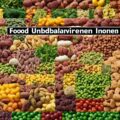Understanding the Latest Romaine Lettuce E. Coli Outbreak
The recent E. coli outbreak linked to romaine lettuce has understandably caused concern among consumers. While food safety issues can be alarming, it’s important to approach this situation with a balanced perspective, focusing on facts and positive actions we can take to protect our health and support affected communities.
This outbreak serves as a reminder of the interconnectedness of our food system and the importance of compassion – both for those directly impacted by illness and for the farmers whose livelihoods may be affected. By staying informed and taking sensible precautions, we can navigate this challenge together.
The Current Situation: What We Know
Health officials have identified romaine lettuce from a specific growing region as the likely source of an E. coli outbreak. While this news may seem scary, it’s important to remember that our food safety systems are constantly working to detect and contain such issues quickly.
Key points to understand:
- The outbreak is limited to a specific growing area and harvest period
- Many romaine products remain safe to consume
- Authorities are working diligently to investigate and resolve the issue
- Most people recover from E. coli infections without long-term effects
By staying calm and informed, we can make wise decisions about our food choices while supporting the broader agricultural community.
Protecting Your Health with Compassion
While it’s natural to feel concerned, remember that fear and panic don’t serve us well. Instead, let’s focus on positive steps we can take to protect our health and the wellbeing of others:
- Check the origin of romaine lettuce before purchasing or consuming
- Wash all produce thoroughly, even if labeled as pre-washed
- Cook vegetables when possible to kill potential bacteria
- Support local farmers who may be indirectly affected by the outbreak
- Practice gratitude for the abundance and variety of safe food options available
By approaching this situation with mindfulness and care for ourselves and others, we can turn a challenging event into an opportunity for growth and community support.
The Bigger Picture: Food Safety and Sustainability
While outbreaks like this are concerning, they also highlight the incredible progress we’ve made in food safety. Our ability to quickly identify and respond to potential health risks is a testament to the dedication of farmers, scientists, and regulators working to keep our food supply safe.
This event also invites us to reflect on the broader issues of food sustainability and security. How can we continue to improve our food systems to be more resilient, transparent, and equitable? Some ideas to consider:
- Supporting sustainable farming practices that promote soil and plant health
- Advocating for policies that strengthen food safety measures
- Exploring local and diverse food sources to build community resilience
- Educating ourselves about the journey our food takes from farm to table
By engaging with these larger questions, we can turn a moment of crisis into an opportunity for positive change in our food systems.
Supporting Affected Communities
In times like these, it’s crucial to remember the human impact of food safety issues. Farmers and agricultural workers may face significant economic challenges due to decreased demand, even if their products were not directly involved in the outbreak.
Ways we can show support and compassion:
- Continue to buy produce from unaffected regions and trusted local sources
- Share accurate information to combat misinformation and unnecessary fear
- Express gratitude to the farmers and workers who provide our food
- Consider donating to organizations that support sustainable agriculture and food security
By extending kindness and support to those affected, we strengthen our communities and build resilience for future challenges.
Nourishing Ourselves Beyond Food
While ensuring the safety of our physical nourishment is important, let’s not forget the other aspects of wellbeing that sustain us. This situation offers an opportunity to reflect on our overall health and the many ways we can nurture ourselves and others:
- Practice stress-reduction techniques like meditation or deep breathing
- Engage in physical activity to boost mood and immunity
- Connect with loved ones and share support
- Explore new recipes or cooking methods with safe, seasonal ingredients
- Cultivate gratitude for the abundance in our lives, even during challenging times
By tending to our holistic wellbeing, we become more resilient in the face of all of life’s challenges, including food safety concerns.
FAQ: Addressing Common Concerns
Q: How can I tell if my romaine lettuce is safe to eat?
A: Check the label for the growing region. If it’s not from the affected area, it should be safe. When in doubt, consider alternative leafy greens or cook your vegetables thoroughly.
Q: What are the symptoms of E. coli infection?
A: Common symptoms include stomach cramps, diarrhea, and vomiting. If you experience severe symptoms, contact your healthcare provider.
Q: How long will this outbreak last?
A: The duration can vary, but authorities typically resolve such issues within weeks. Stay updated through official health department communications.
Q: Can I still support local farmers during this time?
A: Absolutely! Many local farms are unaffected. Buying their produce or supporting them through farmers markets is a great way to help.
Q: How can I stay positive during food safety scares?
A: Focus on gratitude, stay informed through reliable sources, and remember that our food system is constantly improving. Engage in self-care and community support to maintain a positive outlook.
In conclusion, while the romaine lettuce E. coli outbreak is a serious concern, it’s also an opportunity to practice compassion, support our communities, and reflect on the larger picture of our food system. By staying informed, taking sensible precautions, and approaching the situation with a spirit of care and resilience, we can navigate this challenge together and emerge stronger and more connected.









